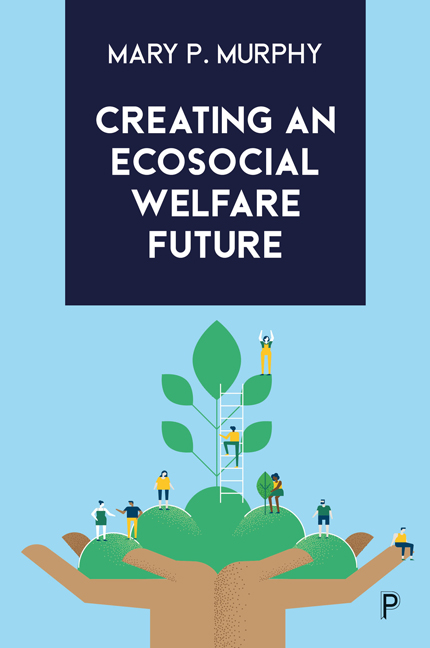Book contents
- Frontmatter
- Dedication
- Contents
- List of figures and tables
- Acknowledgements
- Introduction: The case for a welfare imagination
- PART I From problems to solutions: a post-growth ecosocial political economy
- PART II Building an ecosocial imaginary
- PART III An ecosocial political imaginary
- Conclusion: The case for systemic transformation
- Appendix: Ireland
- Notes
- References
- Index
Conclusion: The case for systemic transformation
Published online by Cambridge University Press: 20 January 2024
- Frontmatter
- Dedication
- Contents
- List of figures and tables
- Acknowledgements
- Introduction: The case for a welfare imagination
- PART I From problems to solutions: a post-growth ecosocial political economy
- PART II Building an ecosocial imaginary
- PART III An ecosocial political imaginary
- Conclusion: The case for systemic transformation
- Appendix: Ireland
- Notes
- References
- Index
Summary
This book began by reflecting on Naomi Klein's candid admission that she came late to climate change politics. Rebecca Solnit has also reflected on how she realised it was time to shift her priorities and make her ‘mild engagement with climate something larger and fiercer’, and challenges us to find our place in engagement with climate change, ‘not just changing what you do, it means being part of the demand for systemic change’ (Solnit, 2016, pp 135– 6). This book echoes that challenge, identifying a clear problem and proposing an ecosocial solution as part of a broader transformative agenda to a post-growth world. It also sketched a political strategy for making it happen. In this conclusion these propositions are interrogated to test whether they are coherent and convincing arguments.
Restating the urgent problems and solutions
Problem
The UK legal contestation of a third runway at London's Heathrow airport and the December 2022 UK decision to open a new coalmine in Whitehaven, Cumbria that will produce annually 400,000 tonnes of greenhouse gas emissions, throws into sharp light the inherent conflict between growth driven by ever-increasing consumption and profit, and the climate emergency which threatens our very existence. Both highlighted the link between high levels of inequality, needless consumption, excessive travel, use of fossil fuels and carbon emissions. We can no longer think about climate crisis, economic inequality and never-ending consumerism in isolation. Tackling them requires action now to develop new ecosocial policies to enable us to reduce consumption by collectively meeting our needs. This means moving ultimately to a post-growth economy and society. Recent COPs and IPCC reports shine a nuanced light on inequality and climate injustice but make clear that the rich are the major contributors to worsening climate change, mainly in the Global North, but with rapidly rising numbers in the Global South (Sweeney, 2020). Developed countries, as perpetrators of such inequality and suffering, need to step up and bear their disproportionate responsibility.
Chapters 1 to 3 made the link between ecological destruction and social inequality as two sides of the same coin. Inequality of income, resources, power and wealth are unequally experienced across different groups in society.
- Type
- Chapter
- Information
- Creating an Ecosocial Welfare Future , pp. 160 - 166Publisher: Bristol University PressPrint publication year: 2023



